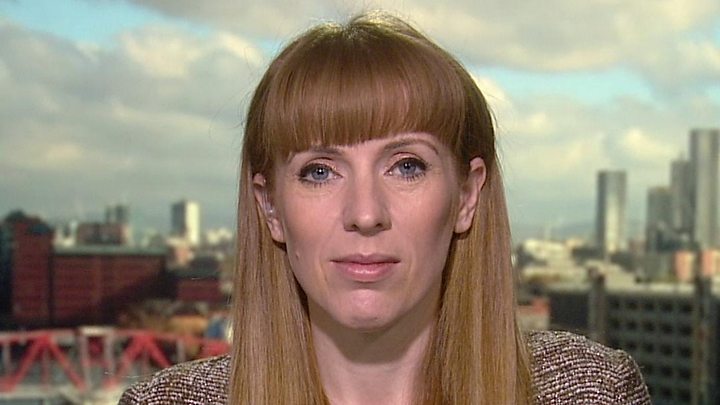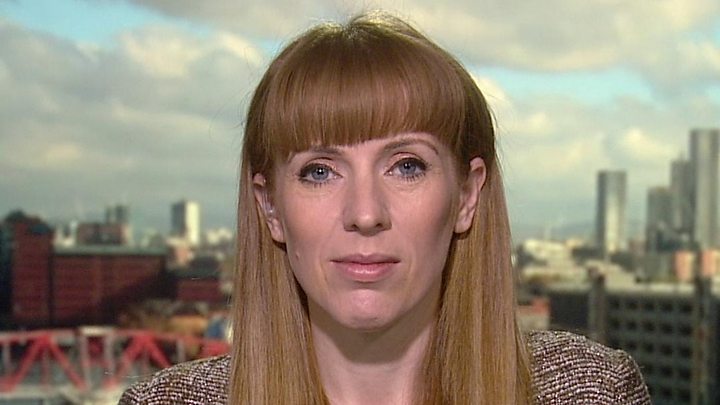General election 2019: Labour pledges payouts to pension age rise women
The party says the compensation, which could cost up to £58bn, will right an “historic injustice”. …


Media playback is unsupported on your device
Labour has promised compensation to more than three million women who lost out on years of state pension payments when their retirement age was raised, if it wins the general election.
Shadow chancellor John McDonnell said the pledge would settle a “debt of honour” to women born in the 1950s.
Those expecting to retire at 60 were told they would have to wait years longer when changes to the state pension age were accelerated in 2010.
Labour said its promise may cost £58bn.
The costing was not included in the party’s manifesto, published earlier this week.
Speaking on the BBC’s Andrew Marr Show, cabinet minister Michael Gove said he was “sympathetic” to the position the women were in but accused Labour of producing a manifesto that “drove a coach and horses” through the party’s own rules on spending.
And Lib Dem leader Jo Swinson said it was not clear “where the money is coming from”.
Analysis
By Katie Prescott, BBC News business correspondent
Labour is pledging to pay all women born in the 1950s for any pension income they may have lost when the men’s and women’s state pension age was equalised – in stages beginning in 2010 – following an act of Parliament in 1995.
But pensions expert John Ralfe says the money would be far better targeted at those who were hit when the timeframe to equalise the gap was accelerated in 2011 – a far smaller cohort.
He argues that it would be sensible to means-test the funding, so it can go to those who suffered hardship when the changes were put in place.
But Labour’s policy is all-encompassing.
The party says that, as all women paid in, all women should get out and as “a one-off historical redress for a historical wrong… the state will be expected to find the money”.
But questioned by Sophy Ridge on Sky News, Mr McDonnell said it would be funded by a “very special arrangement, a contingency, in the same way government in the past has dealt with matters in the past like this”.
The retirement age for women rose to 65 in 2018, in line with men, and will go up to 66 by 2020, and to 67 by 2028.
But a campaign by so-called Waspi women – the Women Against State Pension Inequality – argues that they were not given enough time to prepare for the changes.
Another group of campaigners known as Backto60 recently lost a legal battle against the government over its handling of the issue.
Labour said it would make individual payments of an average of £15,380 to the 3.7 million women it claims were affected, with some payouts as high as £31,300.
Mr McDonnell said the compensation, which the party says could cost £58bn over five years, would right a “historical wrong”.
‘Historic injustice’
He told Sophy Ridge that the women affected “had done everything that had been asked” of them during their working lives and many had been “forced into penury” through no fault of their own.
“This is a historic injustice and we have to address it. Some of these women are older and may not be with us if we don’t act quickly.”
He said Labour was working on the assumption that the women ultimately won their legal fight for financial redress against the government.
“It is expensive but it is an entitlement, it is not a benefit…The scale of this injustice is enormous”.
Asked why the cost of the policy was not included in Labour’s manifesto, he said it was being treated differently from other financial commitments, likening it to compensation the government had to pay to mesothelioma victims after losing a long-running legal battle last year.
Shadow Education Secretary Angela Rayner said justice for those affected was a “price worth paying”.
“People should have confidence in their government that they are not going to steal their pension,” she told the BBC’s Andrew Marr show. “It fundamentally undermines the contract between the state and its people.”
Labour has already promised to freeze the state pension age at 66 for the foreseeable future, a move which would cost billions of pounds more than most recent government plans to raise the age for men and women to 68 by 2039.
How did we get here?
From 1948 for more than 60 years men received their state pension at 65 and women at the age of 60.
But over the years it was argued that the difference was unfair, as women had a longer life expectancy than men.
So under the 1995 Pensions Act a timetable was drawn up to equalise the age at which men and women could draw their state pension.
The plan was to raise the qualifying age for women to 65 and to phase in that change from 2010 to 2020.
But the coalition government of 2010 decided to accelerate that timetable, arguing that the state pension was becoming unaffordable.
Under the 2011 Pensions Act the new qualifying age of 65 for women was bought forward to 2018 – affecting millions of women.
While some of them had time to adapt to a longer working life, for others the change came as a shock.
Labour’s pledge comes as a contrast to the Conservative Party’s outlook on the Waspi campaign.
Boris Johnson was challenged by one of the women affected in Friday’s BBC Question Time leaders’ special.
The prime minister said: “I do sympathise deeply with the Waspi women… but it is very expensive to come up with the solution you want.”
“I cannot promise I can magic up that money for you,” he added.




